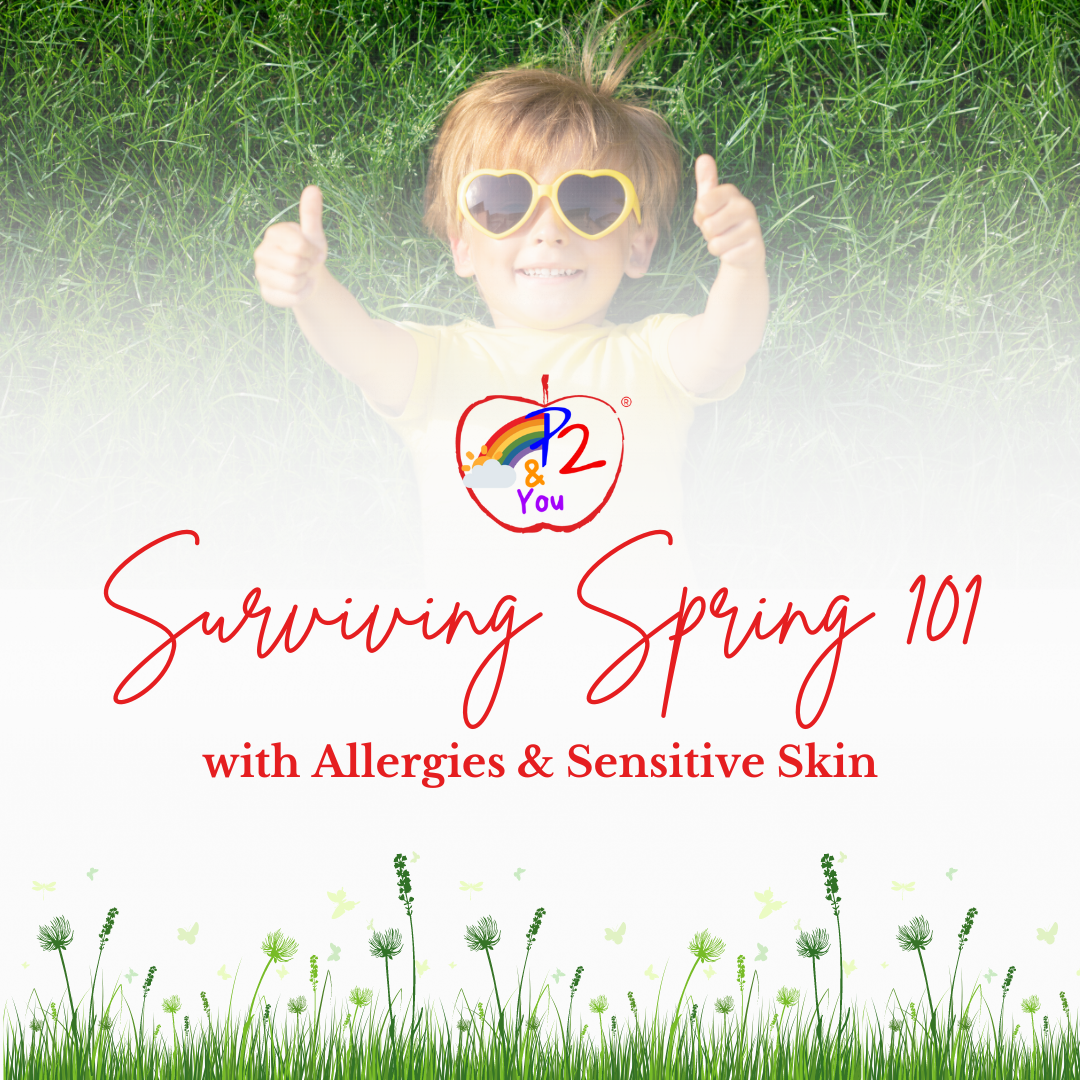
Surviving Spring 101: With Allergies & Sensitive Skin
Spring is finally here, bringing with it blooming flowers, warmer weather, and unfortunately, for some children, seasonal allergies and eczema flare-ups. We understand the challenges that come with these conditions, which is why we're dedicated to providing gentle skincare products that cater to your child's sensitive skin needs.
Understanding Allergies and Eczema
Allergies occur when the body's immune system overreacts to substances in the environment, such as pollen (which is ooooohhhh so present during spring time), dust mites, or pet dander. For children with eczema, this immune system response can trigger or worsen eczema flare-ups. The link between allergies and eczema is well-documented, with studies showing that children with eczema are more likely to have allergies and vice versa.
Research on the Link
Ongoing research continues to shed light on the underlying causes of eczema, with the aim of developing more effective treatments. Recent studies have focused on the following key areas:
Genetics: There is evidence to suggest a genetic component to eczema. Children with a family history of allergies or asthma are at a higher risk of developing eczema. Some individuals with eczema have been found to have a genetic mutation that results in reduced levels of proteins called filaggrin and loricrin in their skin. These proteins are crucial for maintaining the skin's protective barrier, and their deficiency can lead to dryness and weakening of the skin, making it more susceptible to irritants and allergens. This vulnerability may contribute to increased sensitivity to allergens and certain foods. For example, one study observed that infants with eczema had a compromised skin barrier, which exposed their immune cells to proteins in foods like eggs and cow's milk, triggering an immune response.
Skin Barrier Function: The skin barrier in individuals with eczema may have small gaps that allow for quick drying and penetration of germs and allergens. When allergens enter the skin, they stimulate the production of chemicals that cause inflammation, leading to redness and swelling. Research suggests that a specific type of white blood cell may also play a role in the development of allergic reactions in individuals with eczema.
Immunoglobulin E (IgE) Levels: People with eczema often exhibit elevated levels of Immunoglobulin E (IgE), an antibody involved in allergic responses. Researchers are investigating why individuals with eczema produce excessive IgE and its potential role in the disease.
This ongoing research is crucial for developing a deeper understanding of eczema's underlying mechanisms and ultimately improving treatment outcomes for those affected by this condition.
The Importance of Gentle Skincare
During allergy season, it's crucial to use gentle skincare products that won't irritate sensitive skin or exacerbate eczema symptoms. Harsh chemicals, fragrances, and dyes found in many skincare products can further irritate already inflamed skin, making eczema flare-ups more severe. Steer clear of these ingredients!
Our Gentle Skincare Solutions
At P2 & You, we're committed to providing gentle skincare products that are safe and effective for children's sensitive skin. Our products are free from harsh ingredients and are specifically formulated to soothe and nourish the delicate skin of young children, making them ideal for use during allergy season.
Consult a dermatologist: If your child's eczema is severe or not responding to at-home treatments, consider consulting a dermatologist for further guidance and treatment options.
Celebrate Spring with Healthy, Happy Skin
This spring, don't let allergies and eczema flare-ups dampen your child's spirits. With gentle skincare products from P2 & You, you can help protect and nourish their sensitive skin, allowing them to enjoy all the wonders of the season with confidence and comfort.
